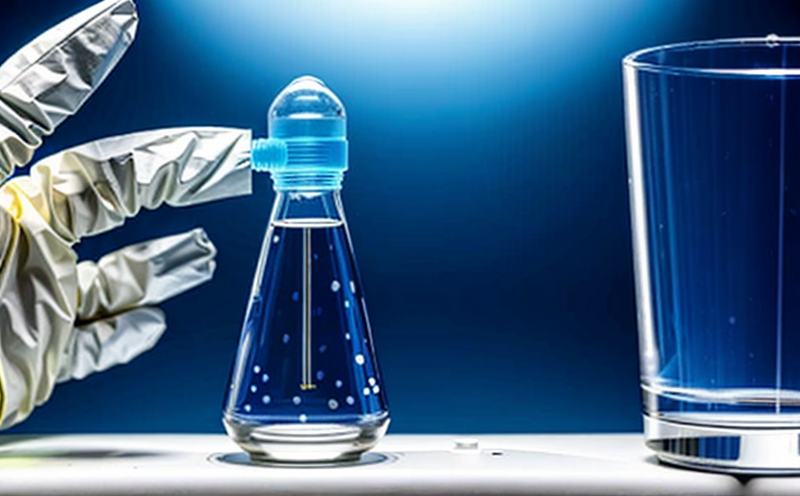Biocompatibility testing for materials in direct contact with the body
The Crucial Step in Ensuring Safety Biocompatibility Testing for Materials in Direct Contact with the Body
As a manufacturer of medical devices, cosmetics, or pharmaceuticals, you understand the importance of ensuring that your products are safe for human use. One critical aspect of this process is biocompatibility testing for materials in direct contact with the body. This laboratory service is essential to guarantee that your products meet regulatory requirements and do not pose any health risks to consumers.
At Eurolab, we offer a comprehensive range of biocompatibility testing services designed to help businesses like yours navigate the complexities of material safety. In this article, well delve into the importance of biocompatibility testing, its benefits, and address frequently asked questions about our laboratory service.
Why is Biocompatibility Testing Essential?
Biocompatibility testing involves evaluating the potential adverse effects of materials in direct contact with the body. This includes assessing their toxicity, irritation, corrosion, and other harmful properties that could lead to health problems or injuries. The primary goal of biocompatibility testing is to ensure that your products meet regulatory standards, such as those set by the US FDA (Food and Drug Administration), EU Medical Device Regulation (MDR), and ISO
Failure to conduct thorough biocompatibility testing can have severe consequences, including product recalls, legal liabilities, and damage to your companys reputation. On the other hand, investing in biocompatibility testing demonstrates your commitment to customer safety and regulatory compliance.
Advantages of Biocompatibility Testing for Materials in Direct Contact with the Body
Here are some key benefits of using biocompatibility testing services like those offered by Eurolab
Regulatory Compliance
Meets international standards (ISO 10993, US FDA, EU MDR) for medical devices and pharmaceuticals
Ensures compliance with regulations for materials in direct contact with the body
Product Safety
Identifies potential health risks associated with material use
Reduces the risk of product recalls and legal liabilities
Protects your companys reputation and brand image
Cost Savings
Prevents costly rework or redesign due to material compatibility issues
Minimizes the financial burden of addressing regulatory non-compliance
Enhances efficiency by identifying potential problems early on in the development process
Competitive Advantage
Demonstrates your commitment to customer safety and well-being
Differentiates your products from competitors who may not prioritize biocompatibility testing
Attracts customers who value safe, reliable products
Innovative Product Development
Facilitates the development of new products with improved material performance and safety profiles
Supports innovation by identifying opportunities for material improvements
Enriches product functionality while minimizing risks
Frequently Asked Questions about Biocompatibility Testing
Q What types of materials require biocompatibility testing?
A Materials in direct contact with the body, such as those used in medical devices (implants, surgical instruments), pharmaceuticals, and cosmetics, need to undergo biocompatibility testing.
Q How do I choose a laboratory for biocompatibility testing?
A Look for a laboratory with experience in biocompatibility testing, ISO/IEC 17025 accreditation, and a strong track record of delivering high-quality results.
Q What methods are used for biocompatibility testing?
A Eurolab uses a range of standard methods, including ISO 10993 (Cell culture tests), ISO 10993-5 (Irritation testing), and ISO 10993-10 (Systemic toxicity testing).
Q How long does biocompatibility testing typically take?
A The duration of biocompatibility testing depends on the specific test(s) required, but most tests can be completed within a few weeks to several months.
Q Can I obtain biocompatibility testing certification from Eurolab?
A Yes, we offer certification services for medical devices and pharmaceuticals that meet regulatory requirements for biocompatibility.
Conclusion
Biocompatibility testing is an essential step in ensuring the safety of materials used in products that come into direct contact with the body. At Eurolab, we understand the importance of this process and are committed to providing high-quality laboratory services that support your business needs. By partnering with us, you can rest assured that your products meet regulatory standards, reducing the risk of product recalls, legal liabilities, and damage to your companys reputation.
Dont wait until its too late choose Eurolab for biocompatibility testing and take the first step towards ensuring the safety and well-being of your customers. Contact us today to learn more about our laboratory services and how we can help you navigate the complexities of material safety.




